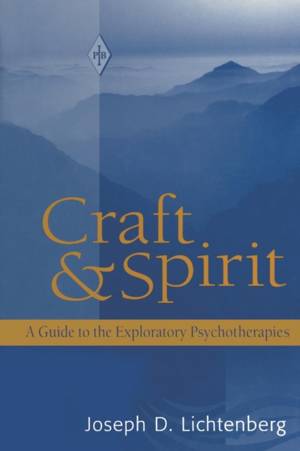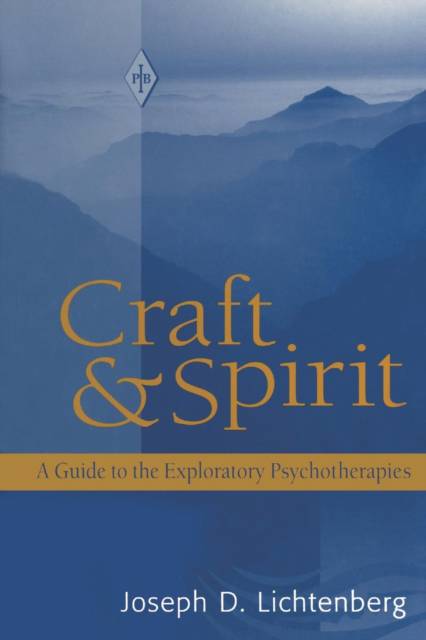
- Retrait gratuit dans votre magasin Club
- 7.000.000 titres dans notre catalogue
- Payer en toute sécurité
- Toujours un magasin près de chez vous
- Retrait gratuit dans votre magasin Club
- 7.000.0000 titres dans notre catalogue
- Payer en toute sécurité
- Toujours un magasin près de chez vous
Description
In Craft and Spirit, Joseph Lichtenberg writes of the craft of exploratory psychotherapy, by which he means the creative skill -- even artistry -- that mobilizes the spirit of inquiry in therapist and patient and sustains it over the course of psychotherapy. He expatiates on this craft as it pertains to patients of our time -- patients who typically bring to therapy backgrounds of insecure attachment and serious concerns about safety and retraumatization. In each of ten chapters, Lichtenberg formulates a different guideline for technique, keyed to the broad domain of exploratory psychotherapies and are accompanied by numerous clinical illustrations. These guidelines seek to foster greater therapist involvement without compromising an openness to psychological exploration. They seek to sensitize therapists to the two interlacing tracks of communication that unfold in treatment: those of verbal exchange and of enactive messages. And they help guide therapist attention among interpenetrating domains of the patient's subjectivity, the therapist's subjectivity, and the intersubjective realm that emerges from their collaborative experience.
Fusing the humanist tradition of therapeutic inquiry with knowledge gained from recent infancy and child research, Lichtenberg develops guidelines suitable to exploratory therapy with patients who communicate not only verbally but also through diverse affect states and altered cognitions. Consistently illuminating on the parallels and disjunctions between caregiver-child and therapist-patient relationships, Lichtenberg is clear about the adult-to-adult dimension of exploratory work in which "provision" is necessarily subordinate to "inquiry." Craft and Spirit is aimed equally at prospective patients, therapists, and analysts, all of whom will be edified by this masterful demonstration of the ways in which a spirit of inquiry imbues the craft of psychotherapy, in Lichtenberg's words, "with its liveliness of sustained purpose."Spécifications
Parties prenantes
- Auteur(s) :
- Editeur:
Contenu
- Nombre de pages :
- 212
- Langue:
- Anglais
- Collection :
Caractéristiques
- EAN:
- 9781138005853
- Date de parution :
- 01-12-14
- Format:
- Livre broché
- Format numérique:
- Trade paperback (VS)
- Dimensions :
- 150 mm x 226 mm
- Poids :
- 294 g

Les avis
Nous publions uniquement les avis qui respectent les conditions requises. Consultez nos conditions pour les avis.






